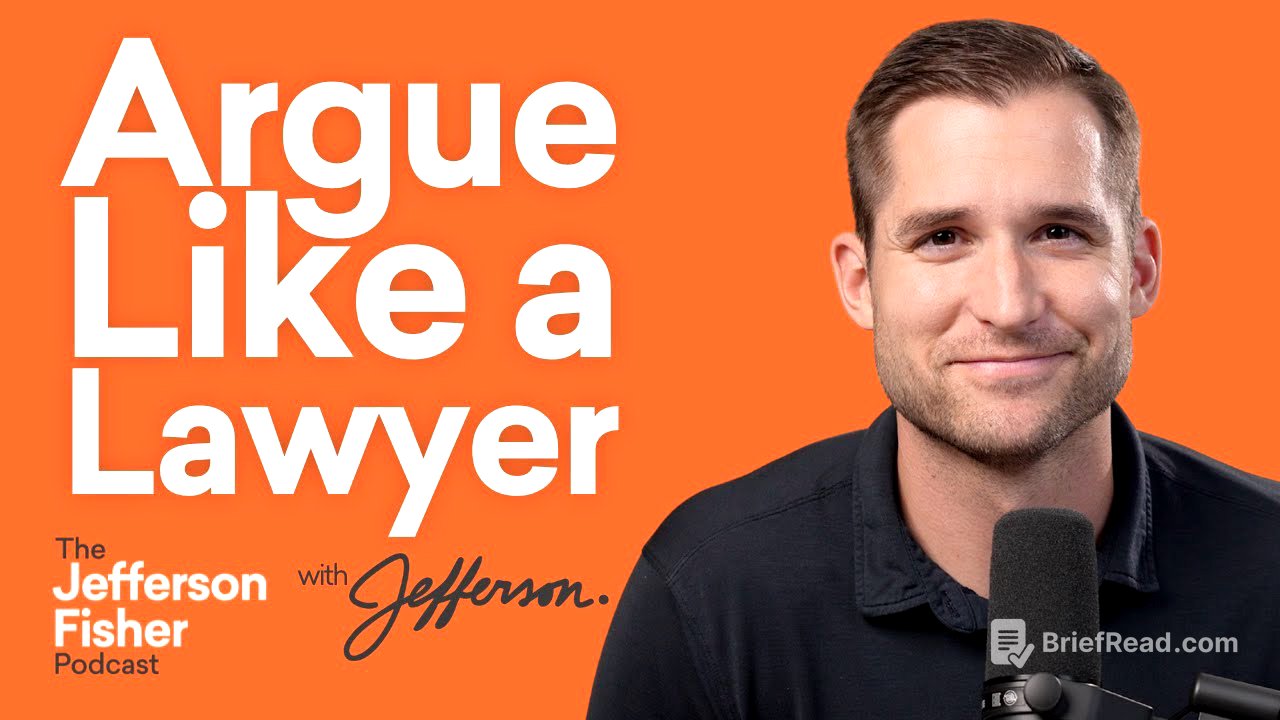TLDR;
This video provides three communication tools that attorneys use, which can be applied in everyday conversations to improve communication skills. The tools include replacing "but" with "and" to avoid creating barriers, focusing on the general aspects of an argument rather than specific details to find common ground, and using enunciation and slower speech to convey strength and seriousness.
- Replace "but" with "and" to build bridges instead of walls.
- Focus on the general aspects of an argument to find common ground.
- Use enunciation and slower speech to convey strength and seriousness.
Introduction [0:00]
Jefferson Fisher introduces the podcast with a promise to improve the audience's communication skills. He encourages listeners to subscribe to the podcast to support the content. He also promotes Cozy Earth sheets, offering a 40% discount with the code "Jefferson" at cozyearth.com/jefferson, along with a 100-night risk-free trial.
Replace "But" with "And" [2:16]
The first tool is to replace the word "but" with "and" in your communication. "But" tends to negate everything that comes before it, creating a barrier in dialogue. For example, instead of saying "I love you, but this isn't working for me," say "I love you, and I need to tell you this isn't working for me." This makes the statement more assertive and grounded. Similarly, replace "I hear what you're saying, but I disagree" with "I hear what you're saying, and I see things differently." This technique is useful in depositions to avoid putting up walls with witnesses.
Focus on the General, Not the Specific [5:44]
The second tool involves shifting focus from specific details to the general aspects of an argument, especially when things get heated. Instead of getting caught up in the minutiae, try to find common ground by agreeing on broader points. For instance, instead of arguing over political details, agree that "we should take care of the next generation." Using phrases like "I agree that's worth a discussion" or "I agree that's a fair concern" can de-escalate the situation and prevent defensiveness. This approach helps to rise above the argument and find a more productive space for conversation.
Annuciate and Slow Down [9:34]
The third tool is to enunciate and slow down your speech to convey strength and assertiveness. Speaking clearly and deliberately can make your words more impactful. When asking a crucial question, avoid rushing and instead, slow down to emphasize each word. This technique is particularly effective when dealing with adversarial individuals, as it allows them to regulate their emotions and listen better. Rapid responses can snap the line of communication, while a slower, more deliberate approach allows for a more thoughtful and regulated conversation.
Conclusion [12:33]
The tools discussed are not limited to legal settings but can be applied in various everyday situations. Whether you're in a heated discussion while driving or trying to resolve a disagreement, these techniques can help improve your communication. The most powerful tool is to replace "but" with "and," as it builds bridges instead of walls. By being disciplined in using these tools, you can enhance your communication skills and achieve your desired outcomes in conversations.









